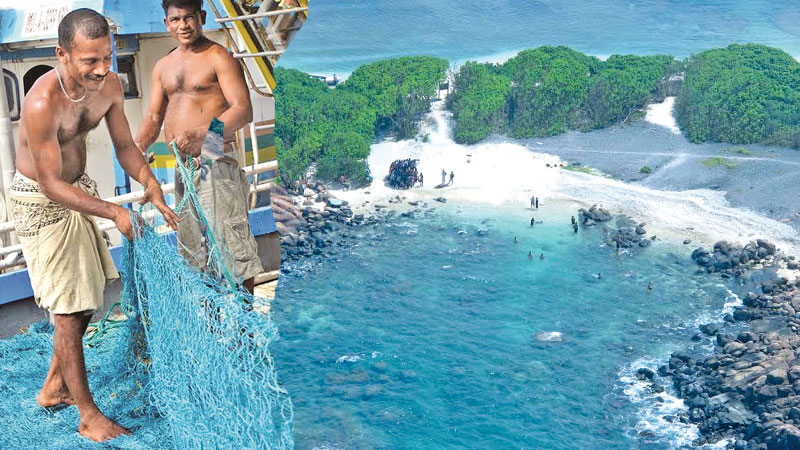Sitting on a bench in the shade, Jamaldeen is likely to be waiting as you arrive on Pigeon Island, a tiny piece of land off Nilaveli Beach, by boat. There is an air of the pirate about him, with his sharp eyes, adventurous look and stripy shorts.
 “Every morning at dawn they fly inland to the paddy fields and return at about 6 o’ clock in the evening,” says Jamaldeen with a fond smile on his face. He is describing the hundreds of rare blue rock pigeons that nest and roost on the island. He has been travelling to the island daily since he was seventeen. He began his working life selling mangoes and pineapples on the beach, and occasionally
“Every morning at dawn they fly inland to the paddy fields and return at about 6 o’ clock in the evening,” says Jamaldeen with a fond smile on his face. He is describing the hundreds of rare blue rock pigeons that nest and roost on the island. He has been travelling to the island daily since he was seventeen. He began his working life selling mangoes and pineapples on the beach, and occasionally
taking the odd tourist over to the island. He explains that at that time he barely knew any English and didn’t have much of an idea what tourists wanted to see. He smiles wisely, saying, “You have to be clever to deal with tourists, and enjoy explaining things.” Now, he enjoys the variety of people that he gets to meet and the friends that he makes: he corresponds with one family in Somerstown, North-West London. It couldn’t seem further from the landscape and seclusion of Pigeon Island.
The stress and fear
The reefs around the island are very shallow, which means that you can walk in off the beach and see blue and purple corals, colourful fish, shells, starfish, kalamari, groupers, sea snakes and turtles within seconds. Jamaldeen turns his gaze to some hollows in the sand where turtles have laid and hatched their eggs. When asked if there is a season when they come, he and his friend smile and reply, “They come when they feel like it.”
Jamaldeen comments that now the civil war is over, everyone feels relieved and free. During the war the fishermen could not fish at night. Previously, there were navy restrictions because the Tamil Tigers often passed through under the cover of darkness to raid boats for their engines and steal valuable petrol. On this topic, Jamaldeen and his friend explain that almost every family they know has suffered some kind of loss from the war. He describes how the Tigers would come to the villages and persuade people over the period of about a month to hand over their children in return for money. The stress and fear that they have lived under is clear in their faces. When asked if they think it is over for good they reply: “We really hope so.” Yet their voices are edged with in Sri Lanka one never really knows. They agree that for the time being, the return of tourism, and a horizon full of twinkling fishing boats and of course their flock of loyal blue birds is enough to be optimistic about.
A wonderful place

The fleet of R. A. F. Fighter Bombers like a stealthy sheet of wind comes into view to the strains of Wagner’s Ride of the Valkyries buzzing in your ears and the stunned audience of men, women and children watch shell-shocked. Feels too close to home, if you were an inhabitant of this small area during the brutal war years, what you actually witnessed wasn’t some air raid blitzkrieg but the famous blue pigeons flying high again in one of their migratory transits which according to local experts of the area who have for now years observed this phenomenon that never ceases to amaze, seems to follow an irregular pattern and is more and more frequent and the birds don’t seem to be perturbed by the human specs that dot their righteous path to Pigeon Island, a little off the legendary surfer paradise Nilaveli Beach in Trinco. Just make sure you spend a day on the island as it is a wonderful place to explore or just sit and be at one with nature watching the birds.
Other things to do in Trinco:
Trincomalee has been a pilgrimage site for thousands of years and home to all sorts of interesting characters. Ravanna Gate in the heart of the Koneswaram Kovil (temple) complex is a fascinating spot, as is the fort and had spectacular views of the area from it.
Also check out the town market to see the deer left behind in the 1800s by an English family who kept a pair of spotted deer as pets, because leopards where increasingly in short supply and probably not the fashion that year.
The deer couple bred and the herd escalated over the next two hundred years and has now become a familiar feature of the town.
To find a boat go to the harbor or any of the beach front hotels and ask for a good rate to Pigeon Island. Remember to haggle hard as there is no such thing a fixed rate as it goes up and down with the stock market!





Add new comment